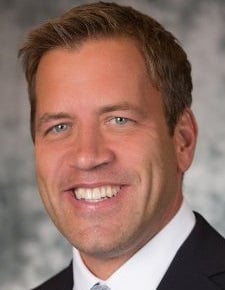
Last year was great for stocks – and a solid year of overall employment growth for Los Angeles County’s securities brokerages.
The 25 firms on the Business Journal’s annual list, as ranked by the number of registered securities brokers in their L.A. County offices, collectively increased those positions to almost 3,700 – by nearly 5 percent over the past 12 months.
Seven firms reported increases in their ranks, eight saw declines, and 10 were flat, based on figures supplied by the companies and Business Journal estimates.
Driving the internal increases, according to local executives, is the buoyant stock market – with the exception of the past few weeks; a growing number of local investors, including millennials; a consolidation trend that has spurred recruiting; and a sweeping new rule that went into effect last summer requiring financial advisors to be more accountable about the types of investments they recommend to clients.
“There is now more focus than ever before on understanding what’s important to each of our clients and coming up with tailored solutions,” said Nicholas Pennino, principal and regional leader for the L.A. office of St. Louis-based Edward Jones. The firm added nine registered securities brokers locally.
“That requires more heavy lifting analysis by our advisors and more face time with clients, which is why we’ve been staffing up,” he said.
Edward Jones also plans to continue hiring this year, despite the recent market wobbles, Pennino added.
Biggest gainers
No. 1 on the list, Morgan Stanley Wealth Management, remained in the spot. It’s staffing level was kept unchanged at 658 because the firm declined to submit information on any change in the number of brokers in its L.A. offices over the past year.
Merrill Lynch held its No. 2. It added 83 brokers over the past year – more than any other firm – bringing its broker total to 591.
The biggest percentage gainer, though, was Pasadena-based Western International Securities Corp., which jumped 30 percent to 195 licensed securities brokers.
Western’s Chief Executive Donald Bizub attributed most of the firm’s internal growth to buying Financial West Group of Westlake Village last summer, which added about 35 securities brokers to Western’s staff. Western also hired 10 new brokers, bringing the total to 195.
Bizub said the acquisition was part of Western’s strategy to deal with the consolidation among brokerage firms.
“There’s been consolidation in the industry going on for quite some time, but it’s really accelerated in the past couple years,” Bizub said.
That’s happening, he explained, because regulatory changes now require more fee-based compensation rather than commissions and that has shrunk margins, and the complexity of the changes are forcing smaller independent brokers to seek out the compliance resources of larger firms.
Fiduciary Rule
The new Fiduciary Rule, which was written by former President Barack Obama’s administration in reaction to the 2008 market meltdown, and went into effect last summer, has been a key driver behind growing brokers’ numbers, according to securities firms. The new rule requires financial advisors to act in the best interests of their clients and follow “impartial conduct standards” regarding investment choices. In most cases, that means advisors must switch to charging clients a flat fee and no longer charge a commission based on a percentage of the overall amount invested.
The rule also requires more rigorous analysis to ensure investments meet their clients’ best financial interests.
Both Edward Jones’ Pennino and Western’s Bizub cited this new rule in their decisions to hire more financial analysts, as did a spokesman for the Los Angeles office of Merrill Lynch.
Technology impact
Not everyone has seen an increase in analysts and brokers, though.
Among those reporting no growth in analysts was Wedbush Securities in downtown, which held steady at 177.
Douglas Pryor, senior vice president of investments for Wedbush, said that the firm hired some new brokers over the past year but didn’t replace several brokers and financial advisors who retired.
“Many firms don’t feel they need to replace an advisor who retires, since technology has allowed current advisors to efficiently manage more clients and assets,” Pryor said. That includes computer programs that map out investment alternatives for clients and more automated trading.
Recent volatility in the stock market is viewed by many as a market boost for securities firms.
“When the market was going up pretty much on autopilot last year, people didn’t need a lot of advice to make money,” Pennino said. “During times of volatility is when advice and strategy is at a premium for clients.”
